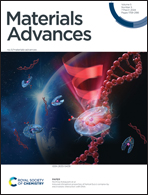Metal–organic framework-derived hierarchical porous N/Co-doped carbon-supported sponge-like Pd–SnO2 nanostructures for low-temperature CO oxidation†
Abstract
Metal–organic framework-derived porous N/Co-doped carbon (MOF-PNC) nanostructures-supported metal nanoparticles (NPs) are of great importance in multidisciplinary catalytic reactions; however, their catalytic performance toward low-temperature CO oxidation (COOxid) is rarely reported. Herein, a MOF-PNC-supported Pd–SnO2 (Pd–SnO2/MOF-PNC) was synthesized via a microwave-irradiation (MW-I), annealing, and chemical etching approach for thermal COOxid. The as-prepared Pd–SnO2/MOF-PNC had hierarchical porous sponge-like nanostructures composed of porous two-dimensional ultrathin nanosheets (NSs), co-doped with N/Co, with a high specific surface area (185.40 m2 g−1) and pore volume (0.045 cm3 g−1), and ornamented with Pd–SnO2 NPs (7.79 ± 1.42 nm). These merits endowed the Pd–SnO2/MOF-PNC with excellent thermal catalytic COOxid activity at a low complete CO conversion temperature (T100 = 65.6 °C) compared to those of Pd(1%)–SnO2/MOF-PNC (165.2 °C), Pd–SnO2 (199.1 °C), Pd/MOF-PNC (107.9 °C) and commercial Pd/C catalysts (201.2 °C), due to the augmented electronic interaction and synergy of Pd NPs with oxygen-rich SnO2 supports and Co–Nx active sites in MOF-PNC. Thus, coupling two supports (i.e., SnO2/MOF-PNC) is more crucial for promoting the low-temperature COOxid activity of Pd NPs.



 Please wait while we load your content...
Please wait while we load your content...